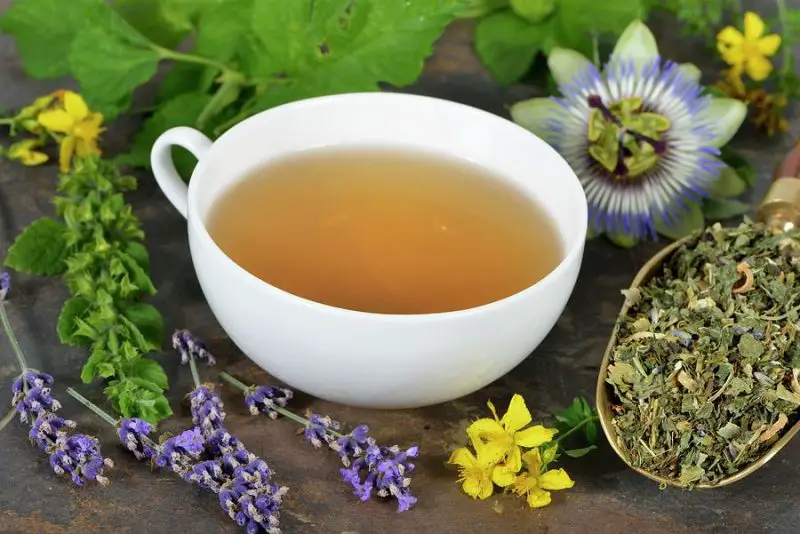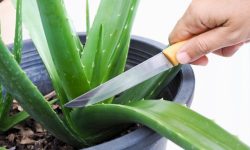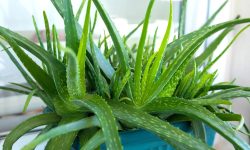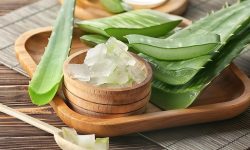Passion flower is a striking vine known for its intricate blooms and calming properties. Beyond its beauty, it has been valued for centuries as a natural remedy for stress, anxiety, and sleep issues. Its leaves, stems, and flowers contain compounds that gently soothe the mind and support overall wellness.
From traditional teas to modern supplements, passion flower offers versatile ways to improve mental and physical health. Regular use may enhance relaxation, promote better sleep, and even support cardiovascular and digestive well-being. Understanding its benefits helps you use this remarkable plant safely and effectively.
Understanding Passion Flower

Passion flower, or Passiflora incarnata, is a perennial climbing vine with distinctive and intricate flowers. It is native to the Americas and thrives in tropical and subtropical regions. The plant is valued both for its ornamental beauty and its medicinal properties. Its vibrant blooms make it a popular choice in gardens, while leaves, stems, and flowers are used for wellness purposes.
The plant contains a range of bioactive compounds, including flavonoids, alkaloids, and glycosides. These compounds interact with the nervous system to promote relaxation, reduce anxiety, and improve sleep. Passion flower is commonly consumed as tea, tincture, capsules, or extracts, with each method delivering different levels of active ingredients. Understanding the plant’s biology and chemical composition is essential for maximizing its benefits safely.
Passion flower has been used for centuries for both cultural and medicinal purposes. Indigenous peoples in the Americas relied on it to relieve stress, insomnia, and digestive issues. Later, European herbalists adopted it for similar uses, integrating it into traditional medicine. Today, passion flower combines historical knowledge with modern scientific understanding. It is widely used to support mental and physical wellness, making it a versatile and valuable herb in holistic health practices. Awareness of its growth habits, chemical properties, and traditional uses helps gardeners and herbal enthusiasts maximize its effectiveness while appreciating its unique beauty.
Historical and Cultural Uses of Passion Flower
Passion flower has a long history of use among indigenous peoples of the Americas. Native Americans used the plant for its calming effects. They prepared teas from leaves and stems to relieve anxiety, insomnia, and digestive discomfort. These remedies were part of everyday wellness practices and spiritual rituals.
When introduced to Europe in the 17th century, passion flower gained popularity among herbalists. They valued it for treating nervous disorders and sleep issues. Its unique floral appearance also made it a decorative plant in gardens. Over time, the plant became integrated into European traditional medicine for stress relief and mild sedation.
Today, passion flower is widely recognized in herbal medicine around the world. Teas, tinctures, and supplements combine traditional knowledge with modern scientific research. Understanding its historical and cultural uses highlights its longstanding value for mind and body wellness. These traditions inform contemporary applications and reinforce its reputation as a natural calming and sleep-supporting herb.
Key Active Compounds in Passion Flower
Passion flower contains several bioactive compounds responsible for its calming and therapeutic effects. Flavonoids are among the most important. They act as antioxidants, protecting cells from oxidative stress. Flavonoids also support the nervous system by promoting relaxation and reducing anxiety.
Alkaloids are another key group of compounds. They provide mild sedative effects, helping to calm the mind and reduce nervous tension. Alkaloids also interact with certain neurotransmitters to enhance sleep quality. Glycosides present in passion flower contribute to cardiovascular and nervous system health, supporting overall physical wellness alongside mental benefits.
The concentration of these compounds varies depending on the plant part and preparation method. Leaves generally contain higher levels of active compounds than stems or flowers. Using proper extraction techniques, such as steeping for tea or creating standardized extracts, ensures optimal delivery of these compounds. Understanding the key active compounds helps maximize the therapeutic potential of passion flower while maintaining safe and effective use for mind and body wellness.
Mental Health Benefits of Passion Flower
Passion flower is widely recognized for its calming effects on the mind. It helps reduce anxiety and nervous tension naturally. Studies indicate that mild to moderate anxiety improves with regular consumption. Its soothing properties promote emotional balance and mental clarity.
The plant also enhances sleep quality. Passion flower can shorten the time it takes to fall asleep and reduce nighttime restlessness. People with insomnia often experience better sleep when consuming passion flower tea or standardized extracts. Its natural sedative effects are gentler than prescription medications, offering a safer alternative for stress-related sleep issues.
Additionally, passion flower may improve focus and cognitive function. Its calming effect decreases mental fatigue and tension, allowing clearer thinking and decision-making. Regular use can help manage stress during busy or high-pressure periods. By supporting both relaxation and mental clarity, passion flower contributes to overall mind wellness. Its combination of flavonoids and alkaloids ensures consistent benefits when used properly and in recommended amounts.
Physical Health Benefits of Passion Flower
Passion flower not only supports mental wellness but also offers several physical health benefits. It has mild anti-inflammatory properties, which may help reduce pain and swelling in the body. People sometimes use it to ease muscle tension and discomfort associated with stress.
The plant also supports heart health. Certain compounds in passion flower can help lower blood pressure by promoting relaxation of blood vessels. This calming effect may reduce the risk of stress-related cardiovascular issues. Some studies suggest regular use can improve overall circulation and maintain a healthier heart rhythm.
Additionally, passion flower aids digestion and may relieve gastrointestinal discomfort. It can help relax the smooth muscles in the digestive tract, reducing cramping and bloating. Combined with its calming effect, this makes it particularly useful for individuals with stress-related digestive issues. When taken in recommended amounts, passion flower contributes to both physical comfort and overall well-being. Its gentle, natural action makes it a popular choice for those seeking holistic health support.
How to Use Passion Flower Safely
Passion flower is generally safe when used in moderation. Adults can consume it as tea, tincture, or capsule. Following recommended doses ensures benefits without side effects. Overconsumption may cause drowsiness or mild digestive discomfort.
Pregnant women, breastfeeding mothers, and children should avoid passion flower. It contains trace alkaloids that may affect sensitive populations. People with chronic illnesses or on prescription medications should consult a healthcare professional before use. Interactions with sedatives, blood pressure drugs, or antidepressants are possible.
It is important to start with small amounts. Observe your body’s response before increasing dosage. Using standardized extracts or high-quality teas ensures consistent potency. Combining passion flower with other calming herbs is safe in moderation but always check for potential interactions. Safe use allows you to enjoy its mind and body benefits effectively.
Different Forms: Tea, Extracts, and Supplements
Tea
Passion flower tea is the most traditional and gentle form of consumption. It is made by steeping dried leaves and stems in hot water. This process releases the plant’s calming compounds, including flavonoids and alkaloids. The tea provides a mild relaxing effect, suitable for daily use.
Tea can be enjoyed alone or combined with other soothing herbs. Chamomile, lemon balm, and lavender enhance its calming and sleep-promoting effects. Drinking tea in the evening may help reduce stress and prepare the body for rest.
One advantage of tea is its accessibility. Loose leaves or tea bags are easy to find and simple to prepare at home. Its gentle nature makes it ideal for beginners or people seeking moderate relaxation without strong sedation.
Extracts
Extracts and tinctures are concentrated forms of passion flower. They provide higher levels of active compounds in smaller doses, making them effective for quick relief. Extracts are often consumed directly or added to water or other beverages.
Tinctures offer convenience and consistent potency. They are useful for people with busy lifestyles who need reliable stress relief or sleep support. Extracts can also be combined with other herbal remedies for enhanced effects.
Due to their concentration, careful dosing is important. Starting with a small amount helps monitor the body’s response. High-quality extracts ensure safety and maintain the plant’s beneficial properties.
Capsules and Supplements
Capsules and tablets provide standardized dosages and long shelf life. They are preferred by those seeking convenience and consistency in daily use. Each capsule contains a measured amount of active compounds for predictable effects.
Supplements are ideal for individuals who cannot consume tea or tinctures regularly. They offer a discreet and portable way to enjoy passion flower benefits. Capsules may be combined with other calming or sleep-supporting ingredients.
Choosing the right form depends on personal preference and lifestyle. Tea offers gentle, flexible use, extracts provide concentrated quick relief, and capsules ensure precise, convenient dosing. Each form supports mind and body wellness effectively.
Potential Side Effects and Precautions
Common Side Effects
Passion flower is generally safe, but mild side effects can occur. Drowsiness is the most common reaction, especially in high doses. Some people may experience dizziness, nausea, or mild digestive upset. These effects are usually temporary and disappear after reducing the dose.
Large amounts of passion flower can amplify sedation. It may interfere with concentration, driving, or operating machinery. Starting with a small dose helps monitor tolerance. Observing how the body responds ensures safe use without discomfort.
Side effects are rare when following recommended doses. Choosing high-quality products and standardized preparations reduces risks. Awareness of potential mild reactions allows users to enjoy benefits safely.
Precautions for Sensitive Groups
Certain groups should exercise caution. Pregnant and breastfeeding women, children, and individuals with chronic illnesses should avoid passion flower unless advised by a healthcare professional. Trace alkaloids may affect sensitive populations.
People taking medications should consult their doctor. Sedatives, blood pressure medications, and antidepressants may interact with passion flower. Combining it with alcohol or other calming herbs can amplify drowsiness or low blood pressure.
Starting with minimal doses helps prevent adverse reactions. Monitoring symptoms and adjusting intake ensures safe, effective use. Sensitive groups benefit from medical guidance to maximize wellness while minimizing risks.
Safe Usage Guidelines
Moderation is key for safe use. Adults can enjoy tea, capsules, or tinctures in recommended amounts. Consistency and proper dosing provide optimal results without over-sedation.
High-quality products ensure purity and potency. Standardized extracts deliver predictable effects for mental and physical wellness. Combining passion flower with complementary herbs should be done cautiously to avoid over-sedation.
Following safe usage guidelines allows users to benefit from anxiety relief, improved sleep, and overall relaxation. Awareness of interactions and potential effects ensures a balanced approach to herbal wellness.
Combining Passion Flower with Other Herbs
Passion flower pairs well with other calming herbs to enhance its relaxing effects. Chamomile, lemon balm, and lavender are popular choices. These combinations can improve sleep quality and reduce stress more effectively than passion flower alone. Herbal blends also add flavor and variety to teas and tinctures.
When combining herbs, consider the potency and properties of each plant. Peppermint or ginger can add digestive support and a refreshing taste. Mild adaptogens like ashwagandha may complement the calming effects without causing excessive sedation. Thoughtful combinations ensure a balanced and pleasant experience.
It is important to start with small amounts when blending herbs. Observe how your body responds to new combinations. Some herbs may interact with medications or amplify sedative effects. Using moderate doses and high-quality ingredients ensures both safety and effectiveness. Properly combined, passion flower and complementary herbs support overall mind and body wellness.
Growing Passion Flower at Home
Passion flower is a climbing vine that thrives in warm and sunny environments. It prefers well-drained soil and regular watering. Overwatering can damage roots and reduce plant health. Planting in a sunny spot ensures strong growth and vibrant blooms.
Supporting structures, like trellises or fences, help the vine grow upward naturally. Pruning encourages thicker stems and more flowers. Regularly checking for pests, such as aphids or spider mites, prevents infestations. Using organic mulch around the base helps retain moisture and maintain soil health.
Growing passion flower at home allows easy access to fresh leaves and flowers for teas or supplements. Home cultivation ensures higher potency and better quality than most store-bought products. Understanding proper planting, care, and maintenance techniques guarantees a thriving plant that contributes to both ornamental beauty and wellness uses. Consistent attention to watering, sunlight, and pruning provides healthy growth and abundant blooms throughout the growing season.
Incorporating Passion Flower into Daily Wellness
Passion flower can be a simple addition to daily wellness routines. Drinking a warm cup of tea in the evening helps reduce stress naturally. The calming compounds in the plant support relaxation and prepare the body for restful sleep. Regular consumption may improve sleep quality and reduce nighttime restlessness.
Capsules and tinctures offer convenient alternatives for busy lifestyles. These forms deliver standardized doses of active compounds, ensuring consistent effects. People who struggle to brew tea daily can benefit from supplements. Combining passion flower with other calming herbs, like chamomile or lemon balm, can enhance its soothing properties. This approach provides a balanced, gentle effect without causing excessive sedation.
Integrating passion flower into mindful practices amplifies its benefits. Pairing consumption with activities such as meditation, deep breathing exercises, or evening walks helps manage anxiety. Consistency is key; using passion flower regularly supports emotional stability and mental clarity. Its versatility allows it to fit seamlessly into tea rituals, supplement routines, or herbal blends. By adopting small, consistent habits, individuals can enjoy improved mood, better sleep, and overall mind and body wellness, making passion flower a valuable component of holistic health practices.
Research and Scientific Studies on Passion Flower
Scientific research has confirmed many traditional uses of passion flower. Clinical studies show it can reduce anxiety and stress. Participants in trials often report improved sleep and decreased nervous tension. These findings support centuries of anecdotal evidence from indigenous and European herbal practices.
Studies also examine its effects on mild insomnia and mental fatigue. Compounds like flavonoids and alkaloids interact with neurotransmitters to promote relaxation. Standardized extracts provide consistent results, making the plant useful in both herbal and modern supplement applications. Research suggests moderate doses are effective and generally safe for adults.
Ongoing investigations explore additional benefits, including cardiovascular support and digestive wellness. Modern science validates traditional knowledge while providing guidelines for safe consumption. Understanding these studies helps users make informed decisions about incorporating passion flower into daily routines. Evidence-based insights also highlight the plant’s versatility in promoting overall mind and body wellness, reinforcing its role as a trusted natural remedy.
FAQs About Benefits of Passion Flower
What is passion flower used for?
Passion flower is primarily used for reducing anxiety, stress, and promoting relaxation. It also helps improve sleep quality and manage mild insomnia. Traditional uses include calming the nervous system and supporting mental clarity. Its leaves, stems, and flowers can be consumed as tea, extracts, or capsules for these effects.
How should I take passion flower safely?
Passion flower can be taken as tea, tinctures, or capsules. Start with a small dose to monitor your body’s response. Avoid combining it with alcohol or sedatives without professional guidance. Following recommended dosages ensures benefits without excessive drowsiness or digestive discomfort, especially for sensitive individuals.
Can passion flower help with sleep?
Yes, passion flower may improve sleep by reducing restlessness and promoting relaxation. Drinking tea in the evening or taking standardized supplements helps shorten the time to fall asleep. Regular use can improve sleep quality and duration, making it a natural alternative to prescription sleep aids for mild insomnia.
Are there any side effects of passion flower?
Side effects are generally mild and uncommon. Some people may experience drowsiness, dizziness, or mild digestive upset. High doses can amplify sedation, so moderation is important. Pregnant women, breastfeeding mothers, and individuals taking sedatives or antidepressants should consult a healthcare professional before use.
Can passion flower be combined with other herbs?
Yes, passion flower blends well with calming herbs like chamomile, lemon balm, and lavender. Combining herbs can enhance relaxation and improve flavor in teas. Start with small amounts to avoid excessive sedation. Thoughtful combinations allow users to enjoy mental and physical wellness safely and effectively.
Conclusion
Passion flower is a remarkable herb that supports both mind and body wellness. Its calming properties help reduce stress, improve sleep, and enhance mental clarity naturally. From traditional teas to modern supplements, passion flower offers versatile ways to incorporate relaxation into daily life. Understanding its benefits, active compounds, and safe usage ensures effective and enjoyable results. By integrating passion flower thoughtfully into your wellness routine, you can experience a balanced mood, better sleep, and overall improved well-being, making it a valuable addition to holistic health practices.






